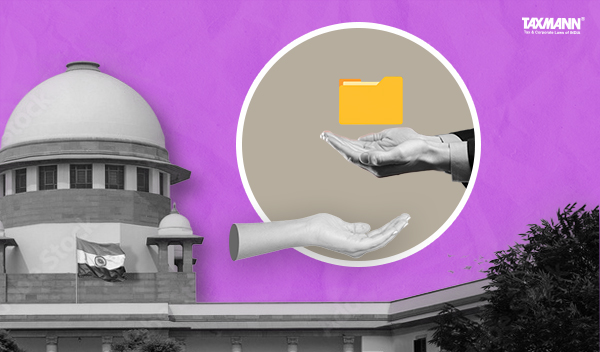CBDT to Provide All Relevant Documents to Assessee Before Rejecting Its Application for Condonation of Delay | HC
- News|Blog|Income Tax|
- 2 Min Read
- By Taxmann
- |
- Last Updated on 25 June, 2024

Case Details: Tata Autocomp Gotion Green Energy Solutions (P.) Ltd. vs. Central Board of Direct Taxes - [2024] 163 taxmann.com 643 (Bombay)
Judiciary and Counsel Details
-
- Dr Neela Gokhale & K. R. Shriram, JJ.
- P.J. Pardiwalla, Sr. Adv., Madhur Agrawal & Upendra Lokegaonkar for the Petitioner.
- Ahileshwar Sharma for the Respondent.
Facts of the Case
Tata Autocomp Gotion Green Energy Solutions Private Limited (the petitioner) was a joint venture between Tata Autocomp Systems Ltd. and Hefei Guoxuan High-Tech Power Energy Co. Ltd. (GOTION CHINA). Petitioner was to be owned 60% by Tata Autocomp and 40% by GOTION China.
The petitioner stated that the commercial production started at the end of the Financial Year 2022-23, and the first bill for sale was raised on 31 March 2023. For AY 2020-21 and 2021-22, the petitioner had not exercised the option to be governed by Section 115BAB of the Act, which it thought of exercising for AY 2022-23.
Therefore, the petitioner filed an application under Section 119(2)(b) to condone delay in filing Form 10-ID to avail of the beneficial rate of tax of 15% under Section 115BAB of the Act for reasons mentioned in the application.
The matter was heard by Member (IT&R), CBDT, and subsequently, the Additional Commissioner of Income Tax (ITA Cell), CBDT, New Delhi, passed an order rejecting the application. Aggrieved by the order, the petitioner filed a writ petition to the Bombay High Court.
High Court Held
The High Court held that the order was challenged on various grounds. Still, two points stand out: first, the order has not been passed or signed by the Member who gave a personal hearing. Second, the order relies on the report of the Field Authorities, which the petitioner stated has not been provided.
CBDT received such a report and considered it only when the petitioner received the impugned order. The petitioner’s officers were called by the ‘Field Authorities’. Their explanations were sought after, but nothing was received by the petitioner. Further, the order says, “This issues with the approval of Member (IT&R), Central Board of Direct Taxes” and is signed by Virender Singh, Additional Commissioner of Income Tax (ITA Cell), CBDT, New Delhi.
If the Member (IT&R) has granted a personal hearing, the order should have been passed by him. The contention that there could be file notings was not made available to the petitioner. Therefore, on these grounds alone, the High Court quashed and set aside the impugned order and remanded the matter to CBDT.
The Member/Members shall make available to the petitioner all Field Reports/documents/instructions received by the CBDT from the Field Authorities. Within two weeks of receiving the same, the petitioner shall file, if advised, further submissions in support of its application for condonation of delay.
Disclaimer: The content/information published on the website is only for general information of the user and shall not be construed as legal advice. While the Taxmann has exercised reasonable efforts to ensure the veracity of information/content published, Taxmann shall be under no liability in any manner whatsoever for incorrect information, if any.

Taxmann Publications has a dedicated in-house Research & Editorial Team. This team consists of a team of Chartered Accountants, Company Secretaries, and Lawyers. This team works under the guidance and supervision of editor-in-chief Mr Rakesh Bhargava.
The Research and Editorial Team is responsible for developing reliable and accurate content for the readers. The team follows the six-sigma approach to achieve the benchmark of zero error in its publications and research platforms. The team ensures that the following publication guidelines are thoroughly followed while developing the content:
- The statutory material is obtained only from the authorized and reliable sources
- All the latest developments in the judicial and legislative fields are covered
- Prepare the analytical write-ups on current, controversial, and important issues to help the readers to understand the concept and its implications
- Every content published by Taxmann is complete, accurate and lucid
- All evidence-based statements are supported with proper reference to Section, Circular No., Notification No. or citations
- The golden rules of grammar, style and consistency are thoroughly followed
- Font and size that’s easy to read and remain consistent across all imprint and digital publications are applied



 CA | CS | CMA
CA | CS | CMA
